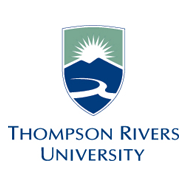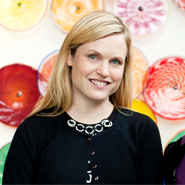[Fall Workshop 2012] Facilitators
Quick Links
- Rob Swanson, Jon Fulton, Oliver Harrison , and Bob Byrne, TRU Open Learning Media Team
(Virtual Learning Environments at TRU) - Sybil Harrison , Rob Peressini, and Nancy Sly, Camosun Learning Commons
(Camosun Learning Commons) - Paul Hibbitts, Hibbitts Design
(Mobile Learning: An Evolving User Experience Perspectives) - Kar-On Lee, Simon Fraser University
(Instructure Canvas & the Mobile Student) - Amy Perreault, kele fleming, University of British Columbia
(Can We Talk?: Unpacking Identity in Space) - Brian Lamb, Thompson River University
(In the Wild, In Service) - Sylvia Currie, Judy Chan
(Pedagogical Lessons Learned as Students in Massive Online Open Courses)
[hr]
 Rob Swanson, Jon Fulton, Oliver Harrison, and Bob Byrne, TRU Open Learning Media Team
Rob Swanson, Jon Fulton, Oliver Harrison, and Bob Byrne, TRU Open Learning Media Team
Virtual Learning Environments at TRU
The Thompson Rivers University, Open Learning Media Team will showcase the work they have been doing with interactive virtual learning environments in a Show/Share/Discuss session.
These virtual environments are created using high-quality stitched photography to build a 360-degree space that users can explore using a standard web browser. This space is populated with interactive media that provides students with learning “in situ”. This is beneficial especially when creating learning for environments that are difficult or dangerous to access (e.g. Kamloops water treatment facility) or environments that are temporary (e.g. TRU Fine Arts graduation gallery).
This presentation will:
- show how the images are acquired and stitched to create the 360-degree environment;
- discuss graphic treatment and user interface considerations;
- discuss strategies for making these virtual environments available for mobile devices;
- show how navigation and interactive media are applied to the environment to provide learning;
- discuss strategies for maintaining and updating content;
- discuss the pedagogical implications of these learning spaces for students and faculty.
 Sybil Harrison , Rob Peressini, and Nancy Sly, Camosun Learning Commons
Sybil Harrison , Rob Peressini, and Nancy Sly, Camosun Learning Commons
Sybil Harrison was recently appointed Director of Learning Services at Camosun College, with responsibilities for the Library and the Centre of Excellence for Teaching and Learning. Nancy Sly is Team Leader for Faculty Development at Camosun College’s Centre of Excellence for Teaching and Learning. Rob Peressini is Manager of Client Services within Camosun College’s Information Technology Division.
Camosun Learning Commons
Learning Commons have become ubiquitous at post-secondary institutions. In 2010,Camosun College undertook major renovations of its libraries, including the establishment of a Learning Commons. What makes the Camosun experience different? The Camosun Learning Commons stands out because of the high degree of cross-divisional collaboration in the provision of services and the use of space. As well, the co-location of the Teaching and Learning Centre within the Learning Commons brings the concepts of learning and teaching closer together. The Camosun Learning Commons has been a remarkable success in its two years of operation – the learning spaces are highly collaborative, are technology-enabled and are warm and engaging. And as a result, the College’s strategic plan recognizes that we must pay equal attention to the learning spaces outside of classrooms in order to fulfill our objective of becoming Canada’s college of life-changing learning.
[hr]
 Paul Hibbitts, Hibbitts Design
Paul Hibbitts, Hibbitts Design
Paul D. Hibbitts lives in Vancouver, BC and established Hibbitts
Design in 1998 to provide his clients personalized user-centered design, interaction design, and training services. He helps teams with hands-on design and with coaching to improve user experiences for a range of contexts, including desktop applications, mobile devices, and the web.
Mobile Learning: An Evolving User Experience Perspective
In this session, Paul will share some of his most recent mobile design experiences and challenges. Two new WordPress-based mobile course companions which he launched this Fall will serve as design examples for the session. Topics will include the on-going evolution of the “mobile first” viewpoint, the importance of emotion, recent efforts to better support learning, and experimentation with Twitter Bootstrap (a responsive HTML framework). Participants will be encouraged to also share their viewpoints and experiences.
[hr]
 Kar-On Lee, Simon Fraser University
Kar-On Lee, Simon Fraser University
Kar-On Lee is a learning technology specialist in the Teaching and Learning Centre. She supports instructors interested in employing technologies such as clickers in the classroom. Kar-On has several years of experience in ESL teaching, administration, and development. She holds a BA in linguistics from the University of Victoria and a master’s in education technology from UBC. She also holds diplomas in business computing (Capilano College) and education – TESOL (UBC) and has completed the BC Provincial Instructor Diploma at Vancouver Community College (VCC).
Instructure Canvas & the Mobile Student
How can a post secondary institution better communicate with an increasingly mobile student population? In a discussion format, we will discuss SFU’s new LMS Instructure Canvas’s features: push notification system and the mobile student. Pedagogical, technical and legal barriers will be covered in addition to the benefits. If there is time in the session, participants will be invited to discuss what is and isn’t appropriate for mobile delivery.
[hr]
 Amy Perreault, University of British Columbia
Amy Perreault, University of British Columbia
Amy comes from Métis heritage out of Thompson, Manitoba, though she grew up in British Columbia in West Kootenays. She is the Coordinator of Aboriginal Initiatives at the Centre for Teaching Learning and Technology at UBC where she works with staff, faculty groups, training programs for teaching assistants, new faculty, and administrators, to support the development of a higher standard of professionalism in conducting discussions of Aboriginal and other contentious social issues in curricular settings.
Last year she created a professional development series that focuses on key themes that come up around discussions of Aboriginal issues in the classroom. s She is looking forward to learning about ways these conversations happen in contexts outside of the “classroom” and beyond UBC.
 kele fleming, University of British Columbia
kele fleming, University of British Columbia
kele directs the development, implementation, and evaluation of professional development and community of practice programs offered by the Centre for Teaching, Learning and Technology. Her role has University-wide scope, supporting the efforts of faculty, students, and staff who engage in CTLT’s programs to advance their learning and teaching goals.
Can We Talk?: Unpacking Identity in Space
Innovation in the classroom is not always about the latest technology – technology is there to support the thinking and learning within the space. This thinking session will engage participants in a brainstorming process to capture ideas on how to create environments where critical thought and reflection around issues of identity are discussed within learning spaces. We will discuss how these environments can transcend the bricks and mortar of the traditional classroom, and encompass models for learning design, resource development and application of educational technology tools. As educational developers and technologists, we want to know where conversations around identity happen (F2F, online, inside and outside the classroom, social media), how they are supported, and where do the intersection points exist within our work.
[hr]
 Brian Lamb, Thompson River University
Brian Lamb, Thompson River University
Brian Lamb is Director of Innovation Open Learning, Thompson Rivers University. Prior to moving to TRU earlier this year, Brian was a Strategist and Emerging Technologies Manager at UBC’s Centre for Teaching, Learning and Technology for more than a decade. His work focuses on participatory online tools, open practices, student and community engagement. He co-founded blog and wiki platforms that were among the earliest such campus services. He’s been a Research Fellow at Utah State University’s Center for Open and Sustainable Learning (COSL), and a Visiting Researcher at Barcelona’s Open University of Catalonia.
In the Wild, In Service
The desire to facilitate authentic experiential learning frequently takes online learners beyond institutional systems, and into spaces beyond our control. These activities are not simulations of scholarship, but real-life challenges and applications of research, collaboration and communication skills. And as John Willinsky argues in his 2012 Open Education Conference keynote, our historical moment is “a call to rethink educational purpose beyond credentialing and in favor of service.” Using Thompson Rivers University’s fledgling participation in the Wikipedia Education Program as a case study and starting point, this session will attempt to articulate the benefits and difficulties of such approaches. It will also strive to identify other environments and projects that support the notion of the “student as producer”.
[hr]
 Judy Chan, University of British Columbia
Judy Chan, University of British Columbia
Judy works at the University of British Columbia. I have two roles there. I work full-time at the Centre for Teaching, Learning and Technology (CTLT) as an Educational Developer where I work with faculty members to help them find ways to enhance student learning. More….
 Sylvia Currie, Panel Facilitator
Sylvia Currie, Panel Facilitator
Sylvia is Acting Director, Professional Learning at BCcampus and spends her days working with people who want to learn from other people through networks, communities of practice, and events. She helps to steward several online communities, including SCoPE, ETUG, and BC Moodle Users.
Pedagogical Lessons Learned as Students in Massive Online Open Courses
In this panel discussion, individuals will share their personal experiences as students enrolled in MOOCs. What motivated them to sign-up for a course, or courses? What did they expect to get from being a MOOC student? How was the MOOC learning experience different from other learning experience? What worked and what didn’t in their learning spaces? Come and discover the variety of delivery platforms and instruction designs of MOOCs and discuss how we can apply pedagogical lessons learned in designing our own online, blended and face-to-face learning spaces.


Leave a Reply
You must be logged in to post a comment.